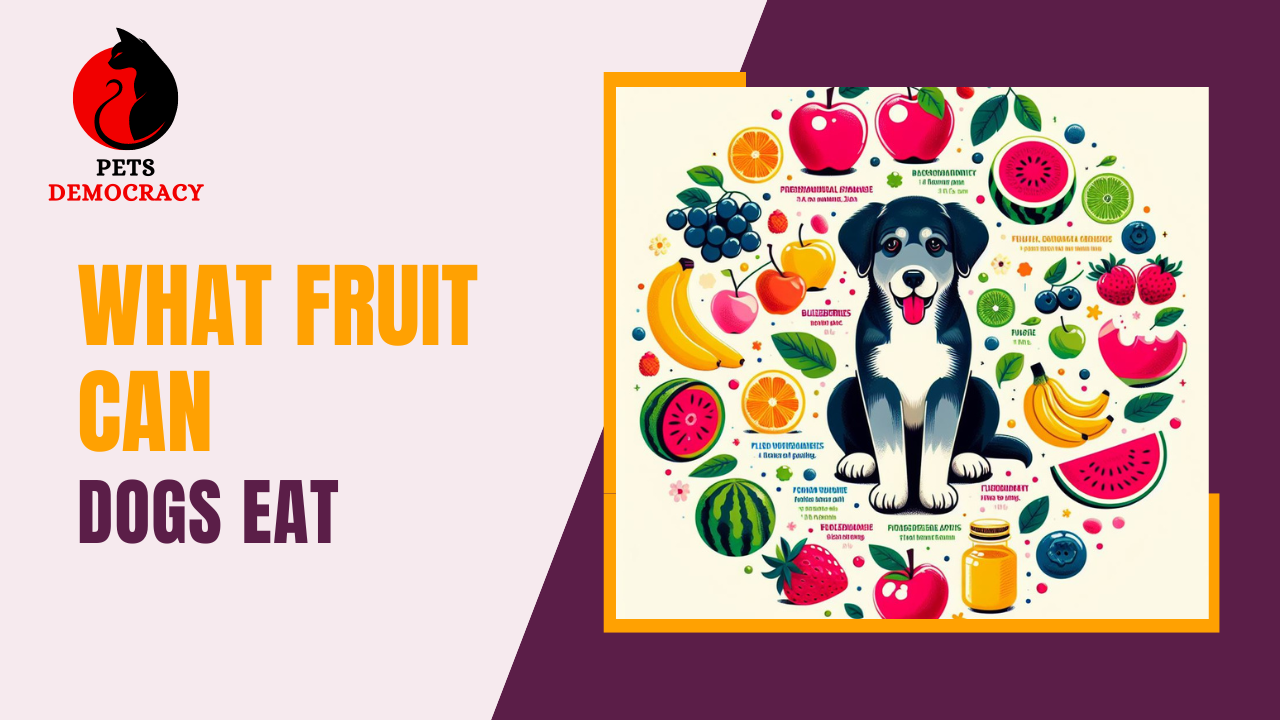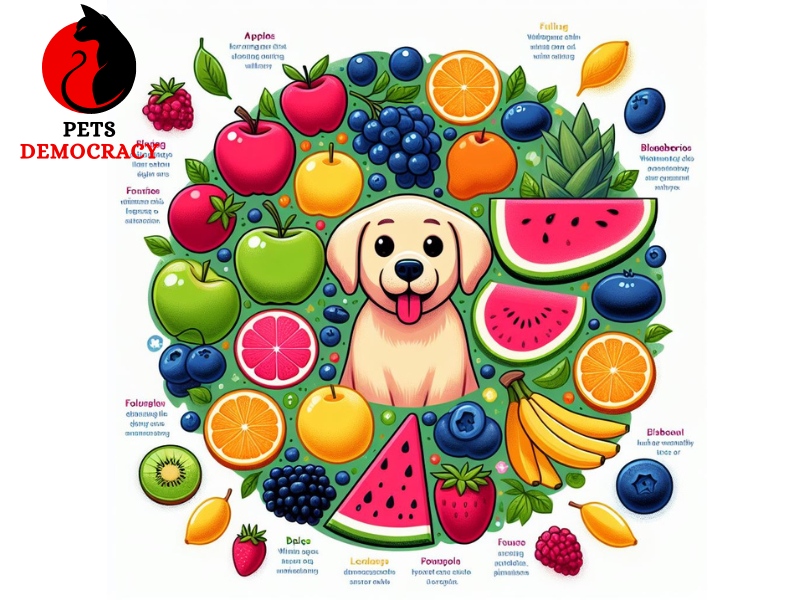
As pet owners, we often wonder about the dietary preferences and safety of various foods for our furry companions. Fruits, in particular, can be a healthy addition to a dog’s diet, but it’s essential to know which ones are safe.
In this comprehensive guide, we’ll delve into the world of canine nutrition, exploring What Fruit Can Dogs Eat safely.
Additionally, we’ll provide insights into printable dog-safe food charts, and the suitability of frozen vegetables, and answer common queries regarding dried peaches and raspberries for dogs.
Exploring What Fruit Can Dogs Eat

Understanding Canine Nutrition Needs
Dogs thrive on a balanced diet that includes protein, carbohydrates, fats, vitamins, and minerals. While their primary diet should consist of high-quality dog food, incorporating fruits as treats can provide additional nutrients and variety.
Suggested Read: How to Know If Dog Feels Cold
What Fruit Can Dogs Eat
What Fruit Can Dogs Eat? Dogs can safely eat fruits like apples, bananas, blueberries, strawberries, and watermelon in moderation. These fruits provide vital vitamins, antioxidants, and fiber that contribute to their overall well-being.
Printable Dog Safe Food Chart
A printable dog-safe food chart serves as a handy reference for pet owners, outlining fruits and other foods that are safe, harmful, or toxic to dogs. By consulting such a chart, you can ensure that you’re offering your furry friend treats that align with their nutritional needs and health requirements.
Can Dogs Eat Frozen Vegetables?
Frozen vegetables can be a convenient and nutritious addition to your dog’s diet. Vegetables like carrots, peas, green beans, and sweet potatoes, when frozen, retain their nutritional value and offer a crunchy texture that dogs enjoy.
However, it’s crucial to avoid seasoned or processed frozen vegetables that may contain harmful additives like salt or garlic.
Suggested Read: Wiki Dog Food
Exploring Dried Peaches for Dogs
Dried peaches can be a tasty snack for dogs, but moderation is key. While dried fruits offer concentrated flavors and nutrients, they also contain higher sugar content than fresh fruits.
Excessive consumption of dried peaches or any dried fruit may lead to gastrointestinal upset or weight gain in dogs.
Can Dogs Eat Raspberries?
Dogs can safely consume raspberries in moderation. These tart berries are packed with antioxidants, fiber, and vitamins, making them a healthy addition to your dog’s diet. However, be mindful of the seeds, which can pose a choking hazard, especially for small breeds.
FAQs About Fruit Consumption for Dogs
What Fruit Can Dogs Eat?
While many fruits are safe for dogs, some, like grapes and raisins, can be toxic and should be avoided.
Fruit Can dogs eat fruit peels and cores?
It’s best to remove peels, seeds, and cores from fruits before offering them to your dog to prevent choking hazards and digestive issues.
How much fruit can I give my dog?
Fruits should be given to dogs as occasional treats and should not exceed 10% of their daily caloric intake.
What are the signs of fruit toxicity in dogs?
Symptoms of fruit toxicity in dogs may include vomiting, diarrhea, lethargy, and difficulty breathing. If you suspect your dog has ingested a toxic fruit, seek veterinary assistance immediately.
Are there any fruits that dogs should never eat?
Yes, fruits like grapes, raisins, avocados, and cherries are toxic to dogs and should be kept out of their reach.
Conclusion
In conclusion, understanding What Fruit Can Dogs Eat safely is crucial for providing them with a balanced and nutritious diet.
By referring to printable dog-safe food charts, pet owners can make informed choices about incorporating fruits and vegetables into their furry friend’s meals.
Remember to offer fruits in moderation and always consult with your veterinarian if you have any concerns about your dog’s diet or health.
Suggested Read: Dog Grooming Tips for Beginners


